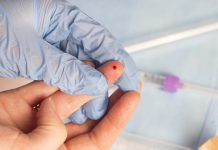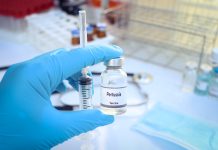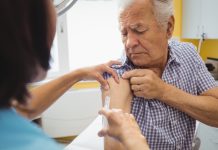A breakthrough treatment for severe hay fever caused by birch pollen will soon be available on the NHS, as NICE recommends the first daily immunotherapy tablet for patients who don’t respond to standard therapies
The National Institute for Health and Care Excellence (NICE) has made a significant breakthrough in allergy treatment by rigorously evaluating and granting approval for the first daily immunotherapy tablet specifically designed to address severe birch pollen allergy. This groundbreaking development offers a new therapeutic option for the thousands of individuals suffering from hay fever who have not found adequate relief through traditional therapies, marking a pivotal moment in the evolution of allergy care in the UK.
Thousands of people throughout the UK who endure the debilitating effects of severe birch tree pollen allergy will benefit from this innovative treatment. The approval from NICE of the first daily immunotherapy tablet, known as Betula verrucosa (Itulazax 12 SQ-Bet), signals hope for those unable to manage their symptoms effectively with standard hay fever medications. This approval represents a significant advancement in hay fever treatment and is expected to substantially improve the quality of life for many patients, particularly during the challenging pollen season.
A long-term solution to hay fever symptoms
Betula verrucosa, developed by Alk-Abelló, offers a long-term solution that distinguishes itself from existing hay fever treatments, which typically provide only temporary relief of symptoms. This new tablet is designed for up to 27,000 people in England who experience severe hay fever symptoms, providing a sense of security and reassurance for these individuals.
This represents the first occasion on which NICE has approved an under-the-tongue immunotherapy specifically targeting severe hay fever. Unlike conventional treatments that generally suppress symptoms, Betula verrucosa takes a proactive approach by training the immune system to build tolerance to birch pollen over the span of three years of daily administration. This mechanism of action focuses on addressing the underlying cause of allergic responses, rather than merely alleviating symptoms.
Building tolerance to tree pollen
Severe hay fever can lead to a multitude of distressing symptoms, including debilitating fatigue, breathing difficulties, inflamed sinuses, eye pain, light sensitivity, and changes in vision, all of which can significantly impact an individual’s quality of life. The immunotherapy tablet contains a carefully measured allergen extract derived from birch pollen and is particularly beneficial for individuals experiencing persistent symptoms despite regular use of antihistamines and nasal sprays.
The treatment employs a systematic approach that involves gradual exposure to small amounts of birch pollen, which helps increase the body’s tolerance levels over time. Clinical trials have demonstrated that this method can significantly reduce symptoms associated with allergic rhinitis and conjunctivitis by fundamentally reprogramming the body’s response to allergens.
In comments on the approval, Helen Knight, director of medicines evaluation at NICE, expressed optimism about the treatment’s potential: “This innovative therapy will significantly enhance individuals’ quality of life. Severe tree pollen allergies often confine people indoors during beautiful weather, negatively impacting their work, education, and family interactions. The daily tablet provides a genuine opportunity for long-term relief rather than simply managing symptoms.”
ALK’s Executive Vice President of Commercial Operations, Søren Niegel, remarked on the significance of this milestone: “Today’s approval reflects a remarkable achievement by ALK, with two of our sublingual allergy immunotherapy tablets being recommended by NICE in less than six months. We are grateful for the esteemed endorsement from a respected institution like NICE, which greatly enhances treatment accessibility for patients suffering from allergies.”
This promising new treatment opens up new possibilities for individuals struggling with severe hay fever, offering them hope for a more manageable future during the pollen-filled months.











